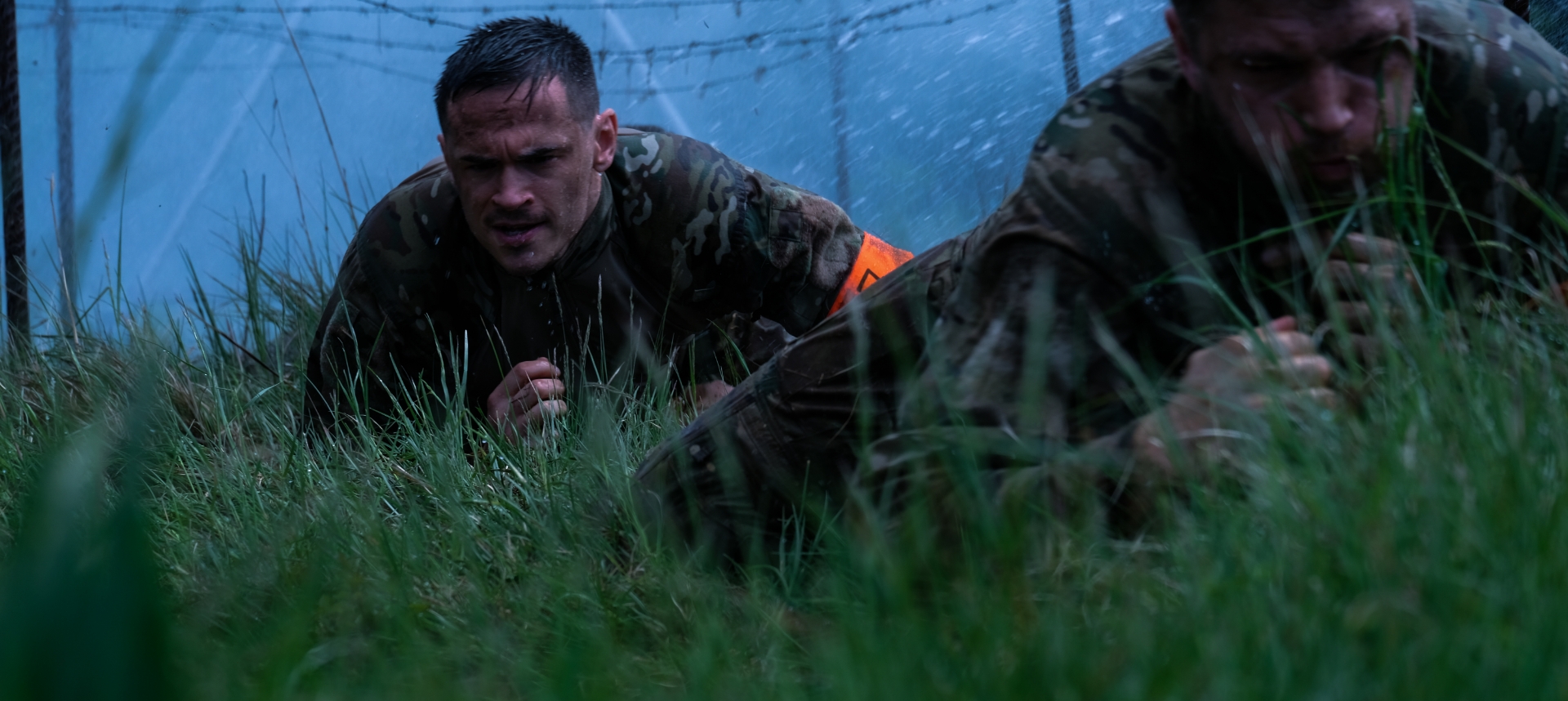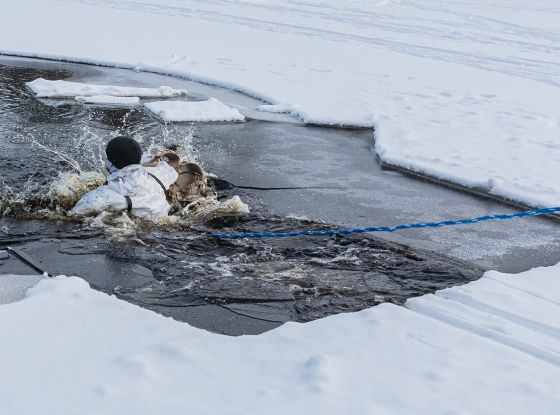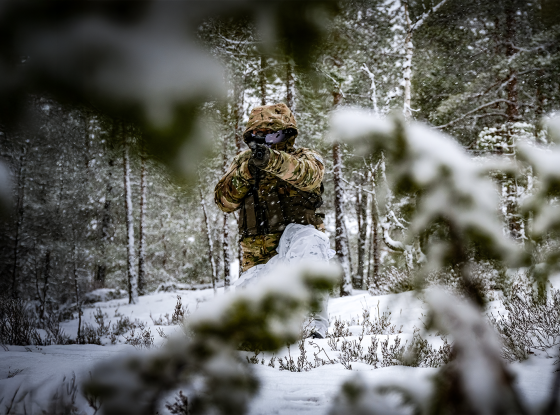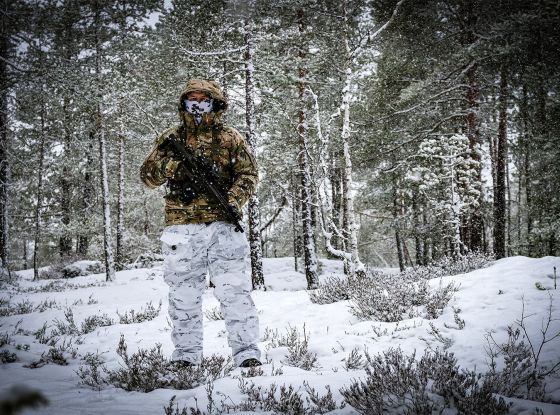In the world of tactical operations, there is a unique challenge few are brave enough to undertake—Special Forces (SF) service. It’s a challenge that begins with the process of becoming a member of an SF team. You don’t simply show up at SF headquarters and announce your desire to sign up. You must also prove your worth as someone deserving of being selected for team membership.
In this blog post:
- Introduction
- Overcoming self-doubt and cultivating the right mindset in SF selection
- Navigating the initial steps of the Special Forces Qualification Course
- Key traits for SF selection candidates
- Persistence in the face of challenges
- Lessons carried forward into service and civilian life
- Advice to future SF selection candidates
- Conclusion
Introduction
In this blog, we explore the transformative nature of the SF journey and provide valuable advice for those aspiring to join their ranks through insights from ex-SF members.
This selection process is about two things in equal measure. First, demonstrating you have the physical strength for SF duty. Second, demonstrating that you are mentally tough and able to overcome self-doubt. You’ll find that it is very difficult to successfully demonstrate these qualities during the SF selection process. However, you shouldn’t look at the difficulty you’ll encounter as a cruel hurdle but, rather, as a stepping stone (actually, a series of them) designed to shape you into a viable candidate for induction into a Special Forces unit.
Overcoming self-doubt and cultivating the right mindset in SF selection
The SF selection process typically kicks off with the Special Forces Preparation Course, a six-week performance-oriented training program that includes physical conditioning, map-reading and land-navigation instruction, and assorted practical exercises. This preparation course is designed to build your physical endurance and tactical skills, but equally crucial is the mental preparation it facilitates because one of the most formidable opponents in any high-stakes endeavour is self-doubt.
“When I questioned myself, I weakened. Remembering my mental credit account made me strong. What any man has achieved, I can also achieve if I don't lose faith in myself.” —Clemens Clausen, ex-German Naval Special Forces
Self-doubt can cloud your judgment, weaken your resolve, and hamper your performance. But as you prepare for SF selection, it's essential to remember that doubt is a natural response to challenging situations. It is your mind's way of asking, "Are we prepared enough?" Rather than shying away from this question, embrace it. Use it as a prompt to evaluate your readiness, identify areas for improvement, and sharpen your skills.
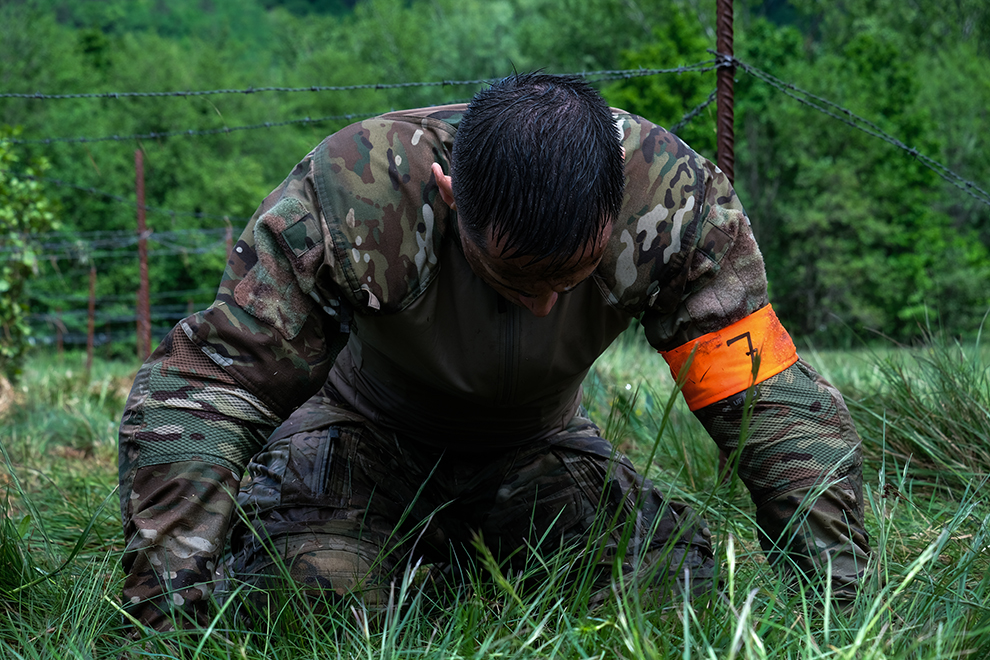
SUBSCRIBE TO UNLOCK OUR EXCLUSIVE CONTENT
Enter your email and get timely updates and relevant intel on tactical topics directly to your inbox.
You are signing up to receive updates via e-mail from which you can opt out at any time. Visit our privacy policy for more info.
Navigating the initial steps of the Special Forces Qualification Course
In the United States of America, for example, the SF preparation course is known as the Special Forces Qualification Course (SFQC, or simply the Q Course for short). Phase One of the Q Course is called Special Forces Assessment and Selection (SFAS). Getting "selected" at SFAS means you are cleared to continue to the next of four subsequent qualifications-proving phases. If you successfully complete all of them, you’ll emerge as a full-fledged Special Forces-qualified soldier.
Throughout this process, maintaining a positive and resilient mindset is paramount because, during the SFAS, you will be pushed to your limits both physically and mentally. You will be subjected to long-distance, land-navigation exercises while labouring under the weighty load of a figurative tonne of equipment. You’ll run fatigue-inducing obstacle courses. You’ll participate in team events of a brutal nature. And psychological exams are all part of this assessment process. Accordingly, at this stage, having the right mindset is about more than just suppressing self-doubt. It's about resilience, the ability to keep going when the going gets tough, the will to push through pain and exhaustion, and the mental toughness to accept failure, learn from it, and carry on.
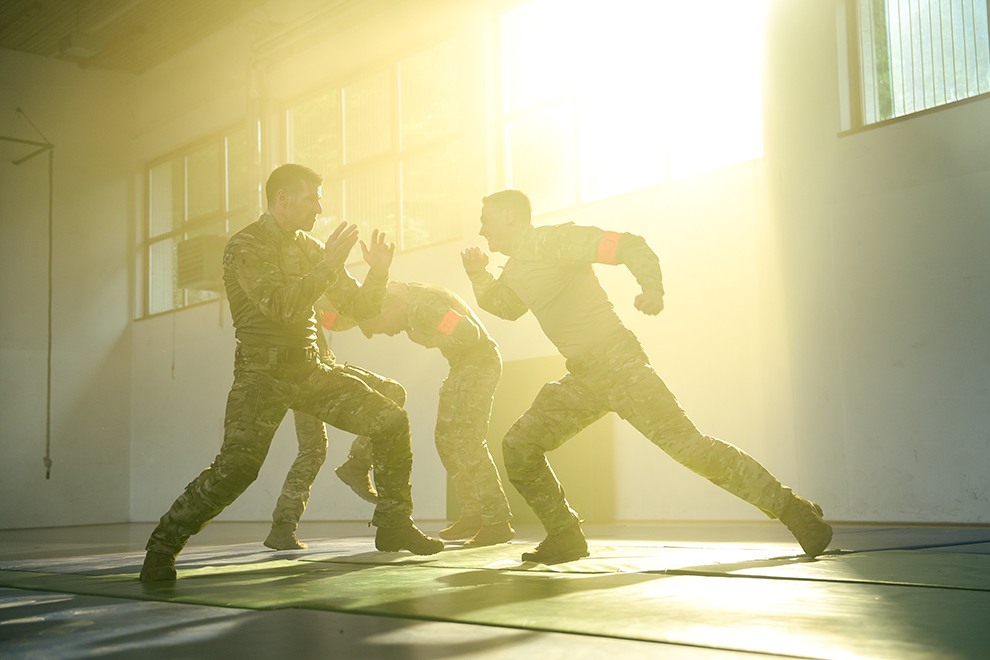
Key traits for SF selection candidates
“While various Special Forces units may emphasise, different skill sets or attributes based on their specific roles and tasks, there's universal agreement on the significance of mental fortitude. It's the cornerstone of a candidate's potential, and often acts as the differentiating factor in SF selection. Mental strength is a complex characteristic that encapsulates resilience, adaptability, problem-solving, stress management, and the ability to make sound decisions under pressure. It's an attribute that is hard to augment post-selection, unlike physical capabilities.” —Eli Feildboy, ex- Israeli SOF member
A significant part of your journey towards becoming a Special Forces soldier is the development of specific, high-value traits. Physical fitness is among them, as are the mental attributes of tenacity, adaptability, resilience, teamwork, and leadership.
- Tenacity ranks way up there in importance, which is why the SF selection process makes you do things like move telephone poles and try to push stuck vehicles out of sand traps. Even though you’ll perform some of these tasks as part of a team, they’re hard enough that at some point you’ll want to quit—unless you possess enough tenacity to power yourself through.
- Adaptability is equally crucial, for Special Forces soldiers are expected to do their job—and do it brilliantly—in a wide range of environments and under an endless array of circumstances. SF selection examiners will be testing to see how quickly you can adapt to new and challenging situations.
- Resilience is the trait that allows you to weather the storm, to keep going when the odds are stacked against you. Physical stamina is one form of resilience that will be tested as will be your mental and emotional stamina.
- Teamwork is at the heart of the Special Forces ethos, so, naturally, the SF selection process is designed to assess your ability to work with colleagues toward achievement of shared goals. You’ll need to exhibit a desire and willingness to collaborate, to be an effective contributor toward whatever the team has been tasked to do.
- Leadership is another critical trait. As a member of the Special Forces, you will be expected to take on leadership roles, often in high-stakes situations. The selection process looks for individuals who can step up, lead, and inspire others under pressure.
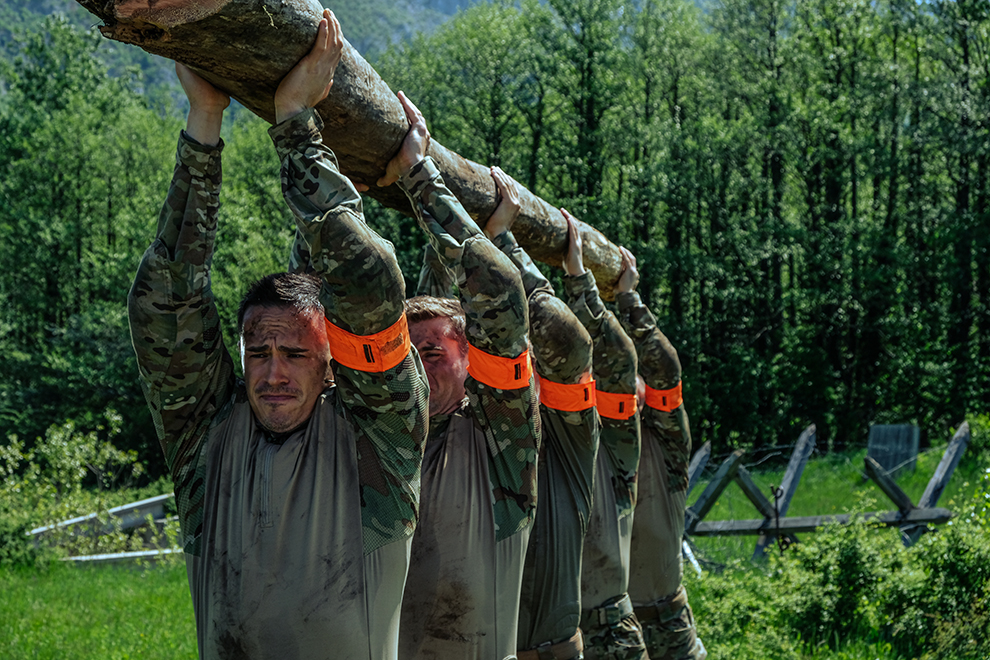
Persistence in the face of challenges
The journey to becoming a Special Forces soldier is fraught with trials and tribulations. Like every SF candidate before you, you will face moments of extreme difficulty, of peak physical strain and mental stress. It’s in those moments that your mettle will be truly tested.
During the SF selection process, one of the most challenging moments comes during the final event of the SFAS—a road march of up to 32 miles known as a Long-Range Individual Movement (LRIM) exercise or, as it’s more plainly labeled, "The Trek." This gruelling event, often conducted in miserable weather and with a heavy load of equipment strapped to your body, will test the limits of your endurance.
The recovery and persistence after such a testing moment are as much about mental strength as they are about physical resilience. Therefore, it will help to recognise that these moments are not just obstacles but opportunities for growth. Remind yourself why you chose this path and draw strength from your commitment to becoming a Special Forces soldier.
Of course, some if not most SF candidates will never make the grade and go on to become members of a Special Forces unit. There will be those who raise the white flag of surrender and withdraw. Others will be scrubbed for failure to meet minimum medical standards. Still, others will make it all the way to the final day of the training program but be disqualified for less-than-impressive overall performance. However, for these candidates, this isn’t the end of the road. They still have options. For example, they can return to their previously assigned unit, or they can be trained for a new MOS based on the needs of their service branch, or they can in 12 or 24 months reapply for SF candidacy and take another shot at it. Persistence, in this case, means not giving up, no matter the outcome.
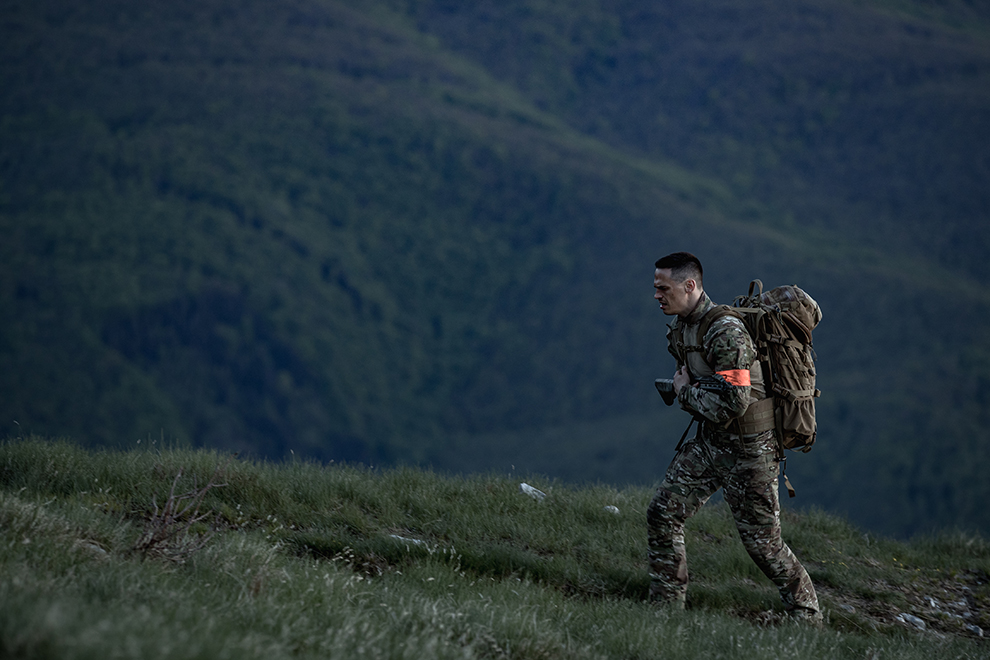
Lessons carried forward into service and civilian life
The lessons you learn during the SF selection process extend far beyond your military service. They are lessons of resilience, adaptability, teamwork, and leadership that become integral parts of who you are, influencing your approach to challenges in both your service and civilian life.
- Resilience acquired in the face of intense physical and mental strain proves valuable in all aspects of life. Whether facing personal hardships or professional challenges, the resilience you develop during the SF selection process will help you endure and overcome.
- Adaptability, honed through diverse training scenarios, becomes a way of life. The ability to quickly adjust to new situations, to find solutions in the face of unexpected challenges, is a skill that is highly valued in both military and civilian contexts.
- Teamwork and leadership skills developed and tested during the selection process are transferable to any environment that involves collaboration and coordination. These skills enable you to contribute effectively to group efforts and lead teams towards achieving common goals, whether in service or in the civilian world.
“There are several invaluable lessons I learned during the selection process that I've carried forward into both my service and civilian life. Firstly, the power of embracing the unknown. I've learned to accept and appreciate that everything is subject to change and seldom unfolds exactly as we envision. Embracing uncertainty, rather than fearing it, has allowed me to be more adaptable and open to the diverse possibilities that life presents. Secondly, I've realised that failure isn't the end of the road, but rather a stepping stone towards growth and improvement. Unless it's a final failure, every setback is essentially an opportunity to learn, reset, and emerge stronger. Flexibility was another crucial takeaway. The ability to accommodate changes, to adapt and work in harmony with them, rather than resisting them, has proven beneficial in all walks of life. Lastly, I've understood the immense value of consistency. Whether it's training, strategic thinking, equipment preparation, or repeating conscious decisions, consistency profoundly influences long-term performance. It's the disciplined repetition that cultivates skills and habits, shaping us for better outcomes.” —Eli Feildboy
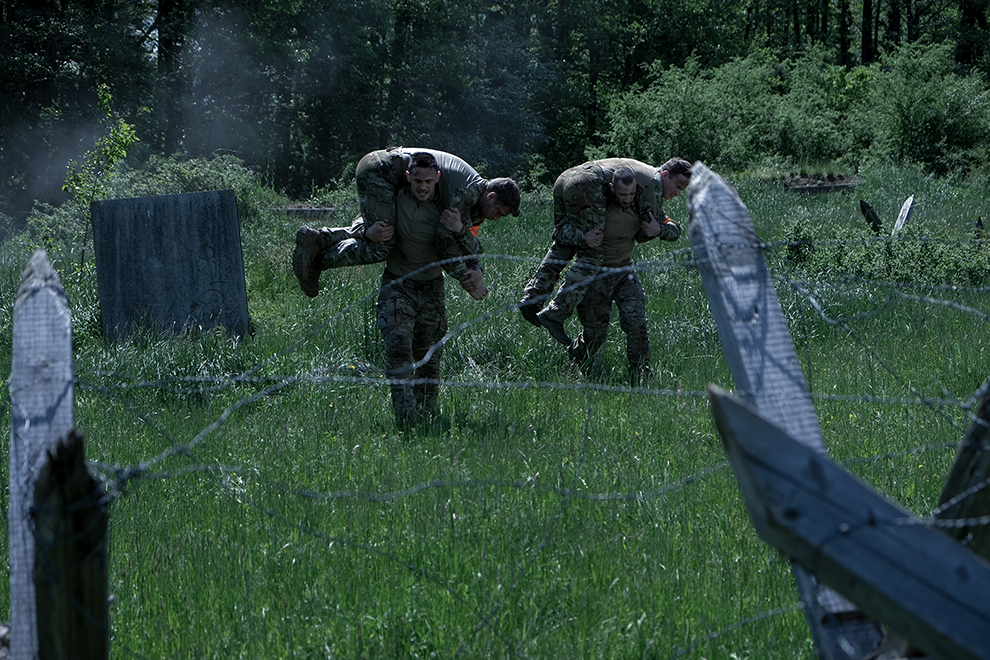
Advice to future SF selection candidates
If you aspire to join the ranks of a Special Forces unit, please be aware that the path ahead is challenging, but also know that the rewards of taking that path are immeasurable. Your journey through the SF selection process will shape you, test you, and ultimately reveal the strength of your character.
“If a candidate lacks mental fortitude from the onset, it's challenging to fully develop it later. In contrast, physical aspects can be improved and tailored to meet the demands of the role. Muscular strength and endurance can be honed through rigorous and targeted training over time. However, personal character, an element intricately tied to mental strength, isn't something that can be rapidly altered or improved. It's a culmination of years of experiences, learnings, and personal growth. Therefore, in the SF selection process, while physical fitness is undeniably crucial, the emphasis on mental strength and the inherent character of a candidate are paramount and often deciding factors.” —Eli Feildboy
What you will want to do is maintain a positive and resilient mindset, develop and exhibit the key traits of tenacity, adaptability, resilience, teamwork, and leadership, and never let a moment of difficulty deter you from your goal. Embrace the lessons learned during the selection process, and carry them forward into your service and civilian life.
The SF selection process is not just about becoming a Special Forces soldier. It's about becoming a person of extraordinary resilience, adaptability, and leadership. It's about becoming the best version of yourself. So, gear up, embrace the challenge, and embark on this transformational journey with courage and determination.
“Burn down the bridge behind you. Don't look for an alternative in case you're not accepted. Give everything but stay healthy.” —Clemens Clausen
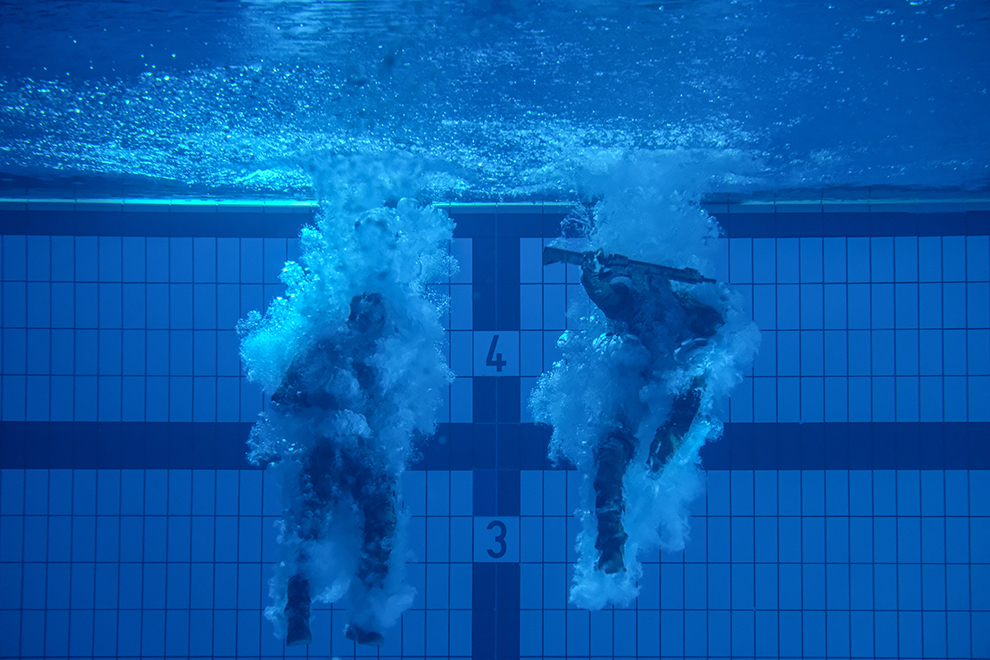
Conclusion
Remember, every Special Forces soldier started where you are now. They were selected in part because they committed themselves right up front to fully and passionately face the daunting SF selection process with determination, courage, and a will to succeed. This journey you’re about to begin. You’re not alone in it. You are part of a proud tradition of service, and you carry with you the hopes and dreams of those who came before you. Limits are a mindset.

